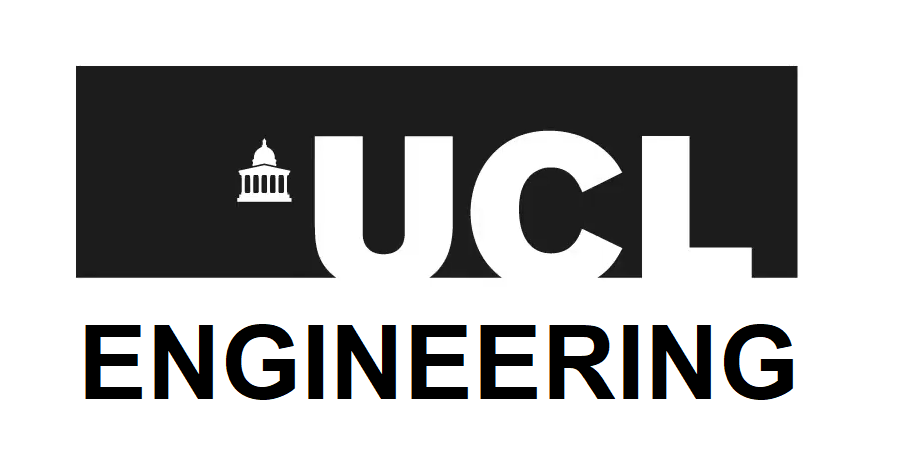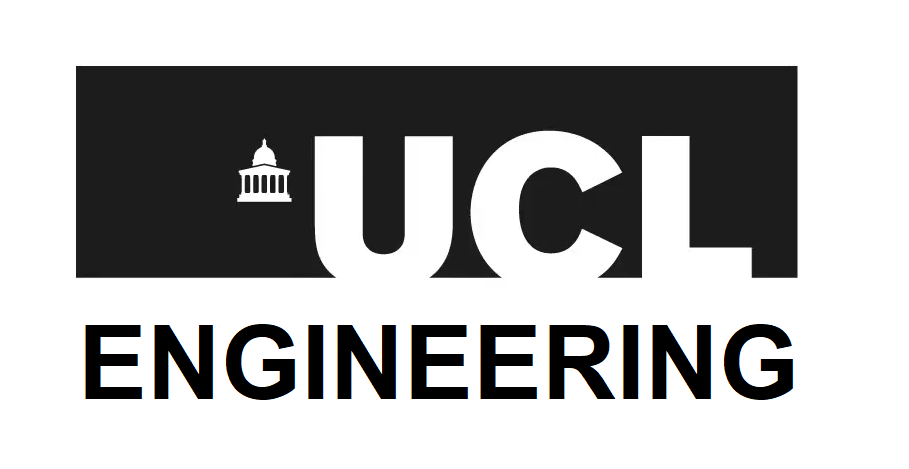STEMotiv (full report)
This is the full report of the STEMotiv research, which assesses trends and developments in student motivation in the Basque Country (see 'data' page for full description).
This is the full report of the STEMotiv research, which assesses trends and developments in student motivation in the Basque Country (see 'data' page for full description).
IT24 is a project organised by the Basque Institute of Telecommunication Engineers. The programma seeks to inspire young people to be technology leaders and solve problems in their lives and their community. It is aimed at young people from 12 upwards.
IT24 is a project organised by the Basque Institute of Telecommunication Engineers. The programma seeks to inspire young people to be technology leaders and solve problems in their lives and their community. It is aimed at young people from 12 upwards. There are two categories: Junior from 12 to 16 and Senior from 16 onwards. The participants solve a real problem set up by one of the partner companies and they have 24 hours within the same complex to solve it in diverse teams. The activity is organised annually.
The project’s main objective is to inspire young people to be technology leaders and solve problems in their lives and their community.
Junior Category Objectives:
Senior Category Objectives
The initiative’s objective is in line with the objectives of the Basque Institute of Telecommunication Engineers, which is foster STEAM studies due to the lack of vocation in technology degree. It also seeks to overcome the gender gap in those professions.

The following data was recorded from post-activity surveys:
Since it was implemented, the participation has been:
The programme was funded by the participating companies, Bizkaia Provincial Council and the different local councils where the event is being held.
Girl Tech Fest is an initiative which aims to increase girls’ interest in science and technology. During Girl Tech Fest girls aged 10-12 are invited to a local library where the girls get to try programming and different technologies themselves. The programme is co-organised by four organisations and coordinated by the Norwegian national STEM platform (NCSR). The event is organised yearly in libraries throughout the country, involving around 1300 girls each time.
Girl Tech Fest is an initiative which aims to increase girls’ interest in science and technology. During Girl Tech Fest girls aged 10-12 are invited to a local library where the girls get to try programming and different technologies themselves. The programme is organised by NCSR in cooperation with IKT-Norway, Oda-network (organization for women working in ICT), TENK - Tech network for women (organization for women to inspire an encourage more girls to choose an education within technology)
While girls’ interest in science and technology decreases from around age 10-12 the boys’ interest does not decrease the same way (see: Corneliussen, H. G., et.al. (2021) Evaluering av Jenter og teknologi). That is why NCSR in cooperation with the partners listed above want to give the girls a day with only girls, where they can play and learn with technology on their own terms. As part of the programme, the girls meet female role models who work or study within technology, which may help them see themselves in such academical fields.
Currently, the NCSR is the national coordinator or project leader of Girl Tech Fest. This includes responsibility for the main event in Oslo and contact with, and support of, local libraries all around the country. Even though the coordination is done by NCSR, the project group is a collaboration between people from all four organizations involved.
The main objective of the program is to increase girls’ interest in technology, and in a longer term: increase the number of girls that choose to study and work within technology and programming. On process-level, the programme aims to spread Girl Tech Fest all around the country and increase the number of locations and girls who participate.

It is difficult to pinpoint the impact of Girl Tech Fest as a single day of tech encouragement. However, the enthusiasm of the participating girls for technology and programming is visible throughout the day. We believe that the fact that these girls are allowed to play with technology and experience these fields, supervised by female role models, in a different setting than they are used to may impact their attitude towards technology and programming.
“When I come home, I am going to find out more about how I can control robots with programming!”, “I never thought I could do programming, but I am actually quite good”, “This is the most fun day at school ever, I wish we could be her every day!” and “I thought technology was boring, but I loooove it and want work with it when I grow up!”.
These are quotes exclaimed by girls at GTF with stars in their eyes. When we experience reactions like these, we do believe that at least we have managed to inspire them a little bit that day. How the girls are prepared for the day, and how it is followed up comes down to the teachers. Some teachers continue to take programming into their classes while others don’t.
Evaluations are sent to the teachers after Girl Tech Fest to get their opinion of the day, and the overall conclusion is that the day is highly motivational for the girls and that they do benefit from participating. The teachers also point out that the day is motivational for them as well, as they can see and be inspired on how to take programming and technology into the classroom.
When Girl Tech Fest first started in 2015 it was held at one location in Oslo as a part of Oslo Innovation Week. 170 girls participated. As the years went by the project grew and saw a desire to expand and offer the same tech day for girls around the country. Since the group who started Girl Tech Fest did this voluntarily on their spear time, they were not able to arrange Girl Tech Fest at more locations. Libraries around the country were contacted and supported to arrange GTF from 2016, and new libraries join the Girl Tech Fest each year. In 2016 Girl Tech Fest were arranged in six different cities with a total of approximately 700 girls. Eight locations arranged Girl Tech Fest in 2017 with a total of 1300 girls, seven locations and 1200 girls in 2018 and in 2019 12 locations created Girl Tech Fest for 1300 girls.
In 2020 almost everything got cancelled due to Covid-19. Three locations did however manage to create alternate versions of the technology day. About 200 girls were lucky to attend GTF in 2020.
In 2021 1600 girls participated at Girl Tech Fest spread at 15 different locations around Norway. The largest location hosted Girl Tech Fest for 225 girls, while the smallest invited 20 girls. The number of girls invited to each location is decided by the local library that is responsible for the day. At each location the girls are invited to try different technological activities and workshops. Almost all girls get to try programming during the day, but we also want to highlight the broad spectrum of what technology can be.
No goals are set when it comes to reach, but we aim to increase the number of girls and locations each year. Especially is geographical spread of Girl Tech Fest is something that requires continues efforts. Both small and larger communities and cities are encouraged to host Girl Tech Fest.
All libraries that host and arrange Girl Tech Fest have the option of applying for support of up 10 000 NOK (equal to approx. 1000 Euro) from the National Center for STEM recruitment (NCSR). NCSR are governmentally funded. Outside this, the libraries use their own funding, and many do also get support from local tech companies. The largest event has traditionally been held in Oslo with 300-400 girls. The funding for this event is based on sponsorship from tech companies. They contribute with financial support and/or manpower on the day. The workshops are mainly held by female workers from these companies. In 2021 this included Microsoft, Cisco, Data Respons, Sopra Steria, Telia, Bouvet, Facebook(Meta), Bekk and Sparabank1.
Currently, the income is used for t-shirts to both the girls who attend Girl Tech Fest and the tech women who attend the day as supervisors, workshop holders and role models for the girls. Lunch for the supervisors is also provided at most of the locations. For the girls, fruit/juice/lunch is provided based on the financial situation on each location. Decorations such as balloons and pennants are also bought in by each location.
How the distribution of the funding will be in the future is currently being evaluated. We see that it is easier to get sponsors in big cities, and we do not want the different Girl Tech Fest arrangement to be too different from each other. How far the libraries or organizers get with the 10 000 NOK is also very different as the locations welcome from 15 to 225 girls. Differentiation of the support is therefore under consideration.
University College London (UCL) is one of the premier universities in the UK, with a strong emphasis on research covering all areas including Science, Engineering and Medicine. UCL has been consistently ranked as one of the top universities in the world. UCL has 30 Nobel laureates, 11 academic faculties, over 45,000 students and over 14,000 employees. The first university in England to admit women on equal terms with men in 1878; the first to admit students regardless of race, class or religion; and to offer systematic teaching of Medicine, Law and Engineering. Today, UCL holds a Silver Athena SWAN Award (framework to transform gender equality in higher education) and a Race Equality Charter Bronze Award. UCL Engineering is proudly international with 6756 staff and students from over 120 nations.
UCL consistently pushes the boundaries of pedagogy, through its award-winning teaching, research and education engagement. UCL has the 1st Laboratory devoted to Engineering Education, is 2nd in research power in the Research Excellence Framework and have been awarded with the Higher Education Academy Collaborative Award for Teaching Excellence. UCL Engineering has developed a strong reputation for schools engagement. Gender equality and inclusion is one of the faculty’s strategic priorities. UCL's award-winning 50.50 Engineering Engagement Initiative has created a step change in the representation of girls, women and ethnic minorities in STEM programmes. Its activities are free and open to all and we insist on 50% participation of girls in all our programmes.
UCL Engineering has developed a strong reputation for schools engagement. For 2022-2023 some of the major initiatives and programmes that we are planning are:
Areas of UCL's expertise include:

Meet the Future You is a tool co-created by UCL Engineering, EngineeringUK, Royal Academy of Engineering, ICE, IET, iMechE and the IOP. By answering a few short questions, students find out how their skills and passions could lead to an exciting job in the future. Whether you're just starting out, or ready to think about your next step, the quiz provides recommendations for future career paths in STEM.
Meet the Future You is integrated in a range of STEM activities, including the outreach activities of University College London (see programmes-page).
The 50.50 UCL Engineering Engagement Initiative focuses on six key priorities, implemented across UCL's 134 STEM programmes, connecting over 30,000 children and young people and 529 schools across the UK with 632 UCL Engineering staff and students who design and deliver the activities.
At the core of UCL's 50.50 Engineering Engagement Strategy is the aim to strengthen and diversify the engineering workforce, by encouraging young people from a wide range of backgrounds - especially young girls - to consider career pathways both ‘in’ and ‘from’ engineering. The initiative focuses on sustained, meaningful engagement, designing programmes that are based in engineering’s real social, ethical, environmental and humanitarian contexts. UCL wants young people to appreciate the interdisciplinary nature of engineering. The programme focuses on gender equality and inclusion, both for the course design and pupil participation, and promote diversity in every sense. Through the 50.50 Initiative, UCL has been able to create a step change in the representation of girls, women and ethnic minorities across all our STEM engagement programmes.
The 50.50 UCL Engineering Engagement Initiative focuses on six key priorities
The programme is linked to the UK government’s “Girls Education” and “Year of Engineering” programmes, as well as policies to get more girls into science and engineering careers and degrees.
As part of the initiative and partnership with EngineeringUK, Royal Academy of Engineering, Institute of Physics, Institute of Engineering & Technology and Institution of Mechanical Engineers, through the programme UCL co-developeds “Meet The Future You” (see background documents) based on real-life UCL engineers, with an emphasis on intersectionality and representation.

50.50 had been implemented across 134 programmes in partnership with 73 stakeholders, connecting over 22,800 girls with UCL Engineering staff and students. Female participation increased from 19% to 76% (2014 to 2021), with girls stating that our programmes are inherently inclusive, “fair” and “for them”. 69% of female participants aged 17-19 years old apply to study STEM subjects at university level. Furthermore, an increase in literacy skills (from 22% to 73%), numeracy (17% to 66%) and understanding of STEM (31% to 75%).
UCL's evaluation strategy goes beyond the “reaction” level, using mixed methodology including pre and post activity responses; impact observed by teachers; evaluation tasks and external evaluator observations. We obtain evidence of impact at: initial reaction; changes in participants knowledge and skills over 3-6 months (medium impact) or 6-9 months (high impact). Impact evaluation process maps were created to support the evaluation process.
The initiative has been implemented across UCL's 134 STEM programmes, connecting over 30,000 children and young people and 529 schools across the UK with 632 UCL Engineering staff and students who design and deliver the activities.
50.50 has several programmes that are funded with different amounts each year, so funding varies significantly from year to year. Funding includes financial (lumsum or co-financing – partnership model) and / or in kind support (i.e. experts, resources, specialised equipment or kit etc.).
Funders include: 1. Education organisations; 2. Foundations and charities; 3. UK Government (DfE) and 4. UCL Engineering faculty outreach budget.
Continued funding depends on shared strategic objectives, the programme’s outcomes and the feedback on impact from the schools, community partners.